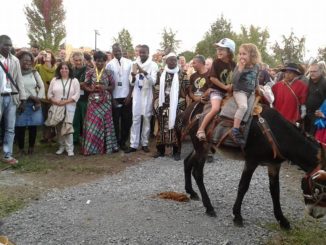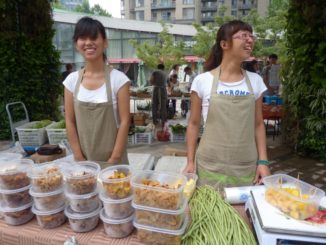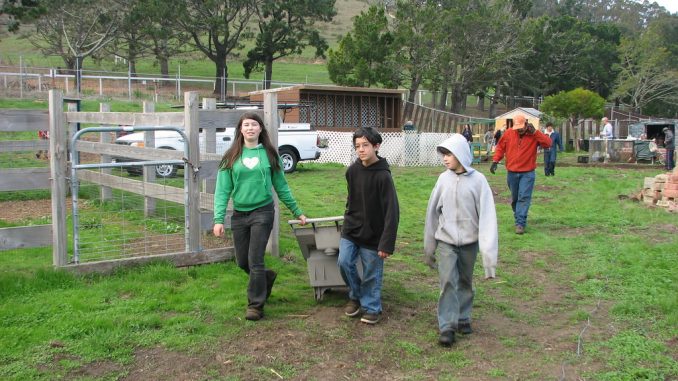
The world seems to have entered a time of transformation. Covid-19 is disrupting the very global supply chains to which neoliberalism has been anchored for decades. With the Green Deal, the European Commission has sketched a roadmap to a carbon-neutral economy. What role can education play in the green transition? Educational ecologist Ans Rossy argues that farms can bridge the growing gap between city children and food, farming and nature, and thus pave the way to a sustainable economy. In an interview with Hans Wetzels for ARC2020, Rossy makes a case for forging connections between farms and schools to help the next generation understand the interdependence of ecosystems, to make learning more relevant, and to open up economic opportunities for farmers.
Farming and forests offer a major opportunity to secure future care for the environment by reconnecting children, students and scholars with nature, argues Ans Rossy, an educational ecologist and facilitator for learning with nature. “Our current educational system doesn’t prepare us well for a balanced life within the biosphere. It doesn’t teach us how to handle the climate and agricultural challenges ahead and thorough knowledge about the mutual dependence of ecosystems is lacking,” explains Rossy. “Farms could fill that gap by offering education to kids, even when growing up in cities.”
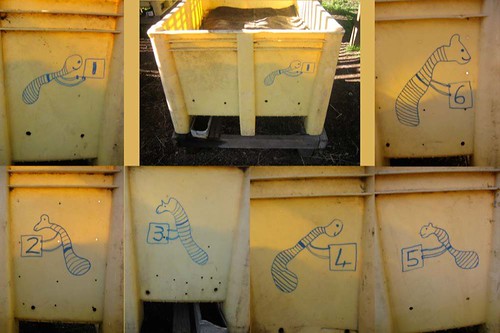
Connecting the dots
“The German speaking part of Europe is way ahead,” says Rossy, who is just back from an annual conference in Germany on the educational role of farms. Amsterdam-born and Brussels-based, Rossy has also lived and worked in Portugal and toured France’s multi-functional agroecological farms on her bike. “In Germany farm pedagogics is a lot farther developed than in Belgium, the Netherlands or France.”
“If we want a green transition happening anytime soon, it’s very important to reestablish a link between our cities and the countryside,” notes Rossy. “To get the next generation of Europeans to understand the interdependence of ecosystems and interested in farming again, policy would ideally be coordinated between different ministries. You’d have to link up education with farm policy, for example. The action plans of the European Commission for the transition into a circular economy completely overlook this aspect. A lot of policies, both national and in Brussels fail to connect the dots.”
The word ecology is derived from the Greek word for home, explains Rossy. The discipline of ecology studies the relationship between living beings and their relationship with the natural environment. As Rossy has also argued in an opinion piece in Dutch, current educational curricula are caught up in the paradigm of employability: preparing young people for the urban job market. “But more and more city kids live in a sort of existential vacuum. They drop out of school, lack perspective or slowly slide away into a world of petty crime,” Rossy states.
“But education should also be about personal development. By bringing school kids outside of the walls of the classroom, arranging classes on farms and in forests, students could not only be stimulated in ways the current educational system doesn’t allow, but would also open up new economic opportunities for farms as well,” continues Rossy. “The opportunities could be endless. The circular economy would thus create an entire array of new jobs while reconnecting urban youngsters with the natural world.”
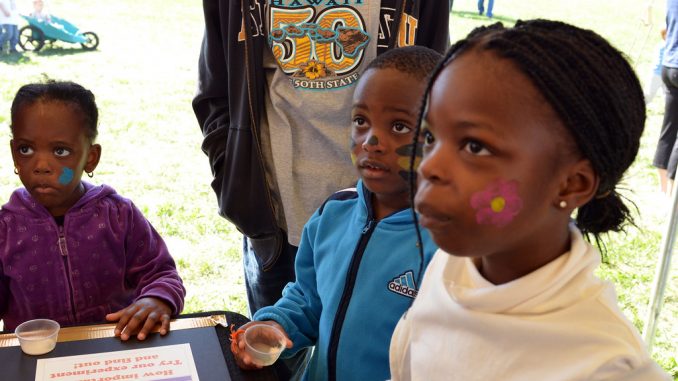
Models
Models for farm education already exist in the German countryside. But at the governmental level there are no structural financing mechanisms, Rossy says: “What you see happening is farms receiving money on a project basis or through sponsoring. This also provides a challenge in term of equal access. That way only rich families will have enough money to pay for their kids’ farm education. That’s not an inclusive model,” she stresses.
“We’ll have to let go of the traditional image of what a farm is. Agroecological and biodynamic farms could not only deliver healthy food to school cafeterias, get kids involved in the cooking themselves, but also invite students from that school to learn at the farm. On the other hand we should also become more creative in using green spaces in major cities like Brussels or Berlin for green pedagogy instead of simply offering them all up to construction.”
Worldwide, rural populations are migrating to ever more intensive urban environments. The danger is clear: urbanization disconnects a large part of humanity from the natural world and the food they eat. “If we really want to transform agriculture and the economy, we shouldn’t forget what the role of language and images is,” Rossy warns. “Contemporary cultural images of farm life are completely unfit to facilitate such a transition. Connecting education with agriculture would help students to gain fundamental knowledge about ecology, the climate, biodiversity and sustainable farming practices.”
A change in perspective could open up new economic opportunities for farms, explains Rossy: “It would also give farmers new ways to make money and could stimulate new and innovative ways of thinking about food production and other green products and services. Cradle to cradle philosophy would offer a lot of opportunity to facilitate a transition towards sustainability, for example by looking at ways to valorize organic waste. In Europe we are using coffee grounds to grow mushrooms on. In South Korea they’re transforming the stuff into bioplastics to make glasses frames.”
Ans Rossy believes farms can play a major role in transitioning the economy, and also create new economic incentives. “We’d have to start by changing the ways we see the farm and relate to food, and that begins with education,” she concludes.
More on Reframing Food & Farming
Framing Farming – Nationalism, Food Security and Food Sovereignty
Coping with Covid19 – Disruption, Protectionism and a People’s Agroecology
IPES-Food on Covid-19: Protect the Vulnerable, Build Resilience, Stay Vigilant
Rural Dialogues | Stochastic System Collapse Part 2 – the Social and Solidarity Economy Alternative
Rural Dialogues | Ruralization: Finding Frontiers for Rural Regeneration



